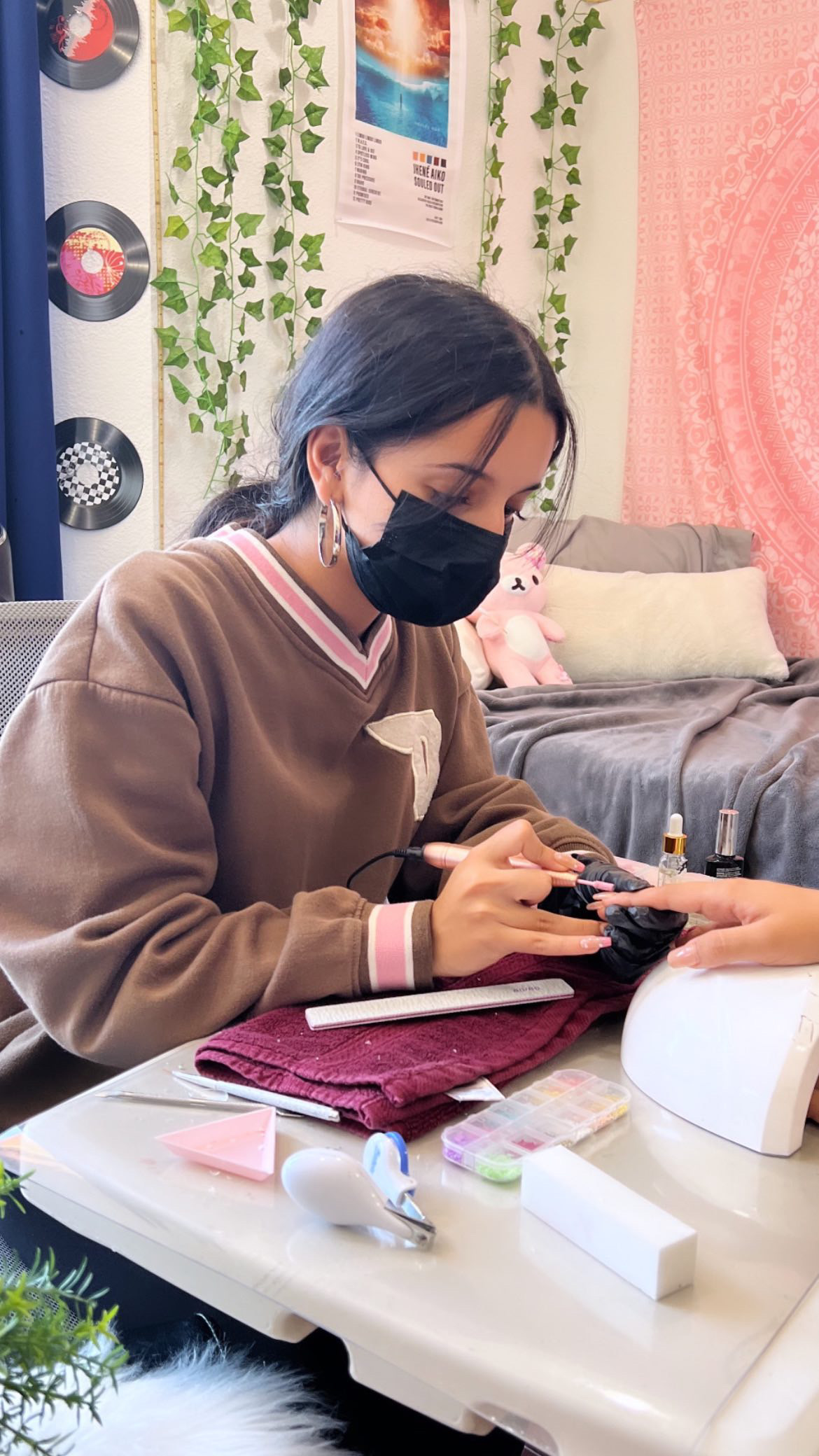Although most people decide to wait to start their own businesses until they receive their undergraduate degrees, some students have decided to become entrepreneurs in high school—running their own cosmetic businesses to make money and pursue their passion.
Junior Vince Nguyen’s interest in his hair-cutting business started when he was a child, he said. In his youth, Nguyen always got bad haircuts and felt he could do a better job himself, he added.
“I just started on my own hair,” Nguyen said. “No training; I taught myself how to cut.”
Similar to Nguyen, senior Simran Seth also learned how to do mehndi (henna), which is temporary body art created by the stains of the henna shrub, from YouTube tutorials and practice, Seth said.
“I freestyle and did (mehndi) on my own as much as I could,” Seth said. “I tried looking at
YouTube videos of how to do it, but honestly, a lot of it was self-taught.”
Seth’s passion for mehndi came from her love for her culture, she said.
“When I started seeing different henna artists performing at different weddings, I got really excited and I wanted to do it on my own,” Seth said. “So this way, I could control my own design.”
Junior Vandita Vaidya’s passion for doing acrylics and nail art came from her childhood, she said.
“Ever since I was young, I always had an obsession with collecting nails with no designs on them so I could create my personalized nails myself, though they weren’t, of course, professional,” Vaidya said. “I always felt a feeling of being at peace whenever I was involved in nail art.”
Running this business allows for her to connect with neighbors, close friends, and family on another level, Vaidya said.
“I’m running (this business) because I was always into helping out the community and in different ways, such as helping out my neighbors with hair and makeup,” Vaidya said. “Now I can connect with them on a different level by providing them services to make them feel confident about themselves.”
Seth, on the other hand, runs her business to express her love for her culture as well as possibly influence those around her to start their own businesses, she said.
“I think it’s a good way to start showcasing culture at least and giving cheaper options for (mehndi for) high school students,” Seth said. “This way, people are more inclined to getting (mehndi) done.”
One of the biggest obstacles Vaidya faced was getting those around her to accept her business, she said.
“As an Indian girl, I feel like (pursuing a cosmetic career is) really looked down upon by the (Indian) community,” Vaidya said. “If I were to pursue this career, then the stereotypes would come into play. It’s mainly looked down upon because (the Indian community) want(s) to think that you really earn money.”
Seth’s largest obstacle was overcoming a mental block, she said. Starting a business comes with a lot of pressure and creates expectations, Seth added.
“Figuring out whether I was good enough to even start a business (was challenging) because a lot of mehndi artists are middle aged women who have had nine or 10 years experience,” Seth said. “I kind of questioned whether or not I was okay or capable to do mehndi business or start one.”
Nguyen’s major obstacle was the process of actually learning how to cut hair, he said.
“I think learning how to cut hair, and then trying to get people in my chair (was the hardest part),” Nguyen said.
One of the biggest pieces of advice that Nguyen could give to those who want to start their own businesses is to spread the word and publicize your business, whether it be via social media or by word of mouth.
“Start small and (your business) will grow,” Seth said. “I think if you’re passionate about what you’re doing, it can only go up from there.”

